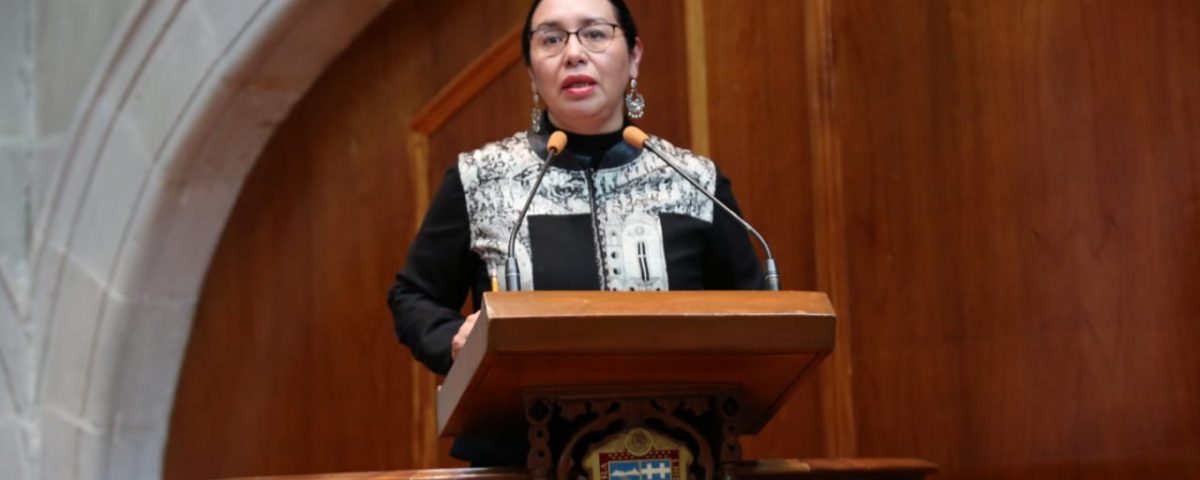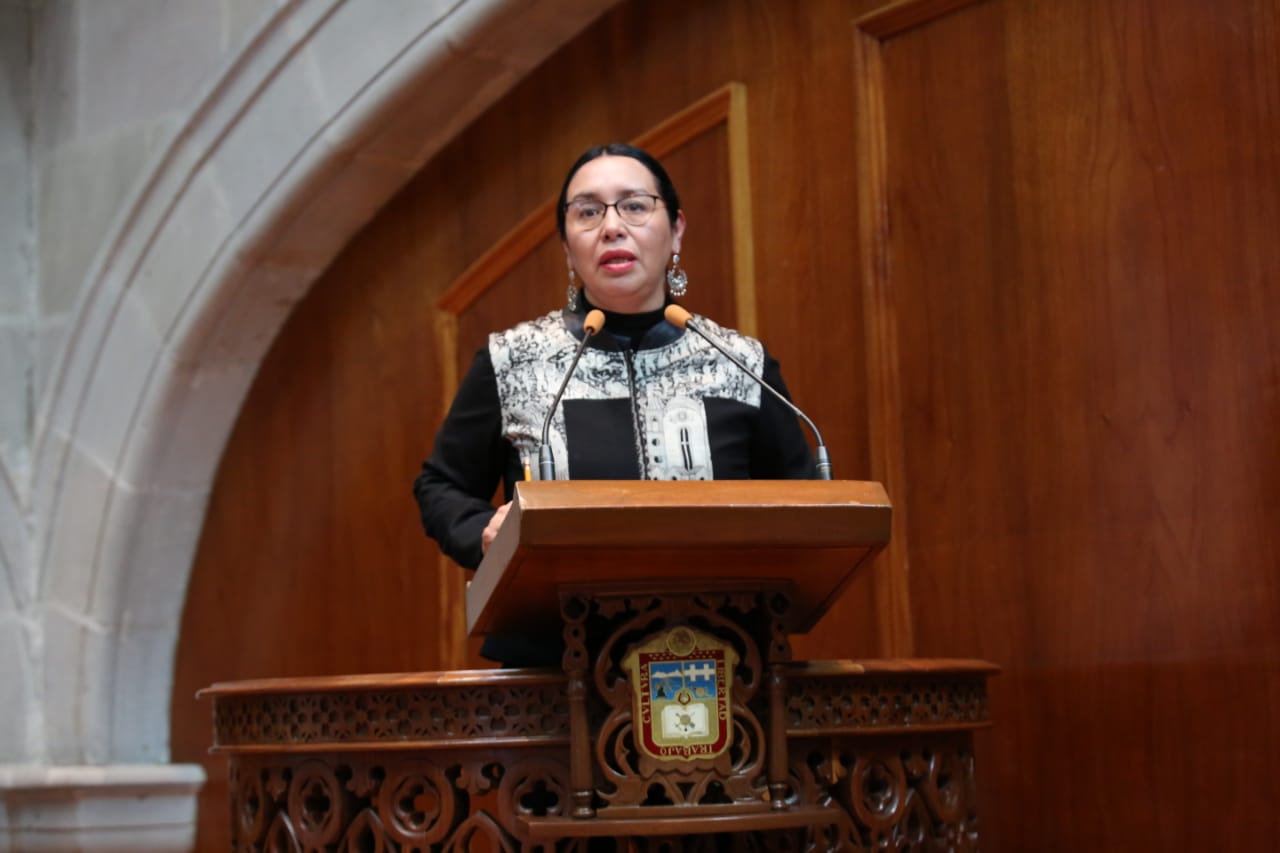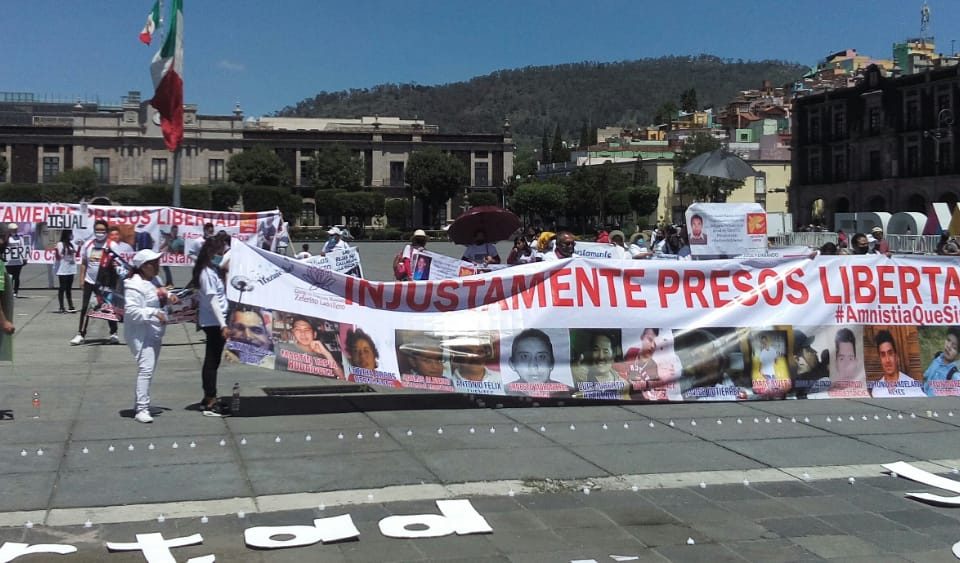
Letter from Javier Sicilia to Julián LeBaron:
November 8, 2019
“Grotesque” Universities are PRI placement agencies and sources of resources
November 11, 2019Enter “Republican austerity” project for Edomex; from Morena

HIGHLIGHTS
Enter "Republican austerity" project for Edomex; from Morena

November 7th, 2019
The Parliamentary Group of Morena in the Local Congress, presented the initiative of the Republican Austerity Law of the State of Mexico, which seeks to curb the expenditure on public spending for the maintenance of the high Mexican bureaucracy, characterized by the purchase and use of luxury cars , paid with public resources, assignment of drivers, use of airplanes to move officials; sumptuous offices, onerous salaries and businesses linked to their functions, what is known as "conflict of interest", which until now is not sanctioned.
During a quick session headed by Deputy Nazario Gutierrez (promoter with the Mexican government of the replacement program) and who encouraged the legislative struggle to reconvene several of his fellow peers, something prohibited by law, legislator Azucena Cisneros, presented the Historic bill that seeks to end the excesses, opulence and perks that for decades, he said, has characterized the Mexican bureaucracy.
The initiative proposes to regulate the acquisition, the contracting of public works, the establishment of limits to the perceptions of senior officials, transparency obligations and the penalty for the commission of administrative offenses. In her statement of reasons, the deputy presented the great expectations of change that aroused the arrival of President Andrés Manuel López Obrador.
“The electoral result of 2018 is a product of social fatigue about those practices that put above the general interest of the population, the collusion between rulers and private interests. In the absence of prompt and effective responses to the most felt demands of the population, the people decided to withdraw the confidence they had deposited in other political options and chose to give an opportunity to that with which they felt more identified and more confident. This fact was also possible in large part because a clear electoral offer was expressed consisting, among other things, of converting honesty and austerity as a way of life and government, ”he summarized.
He said that today more than ever, the vindication of the thought of Benito Juárez is necessary so that public service is seen as an opportunity to serve the nation and not as an opportunity for enrichment.
He indicated that the approval of the Federal Law of Republican Austerity by the Federal Congress now constitutes an opportunity to “vindicate the construction of a new paradigm in the operation of the bureaucracy away from opulence and the expense, of the prebends that the have characterized it ”.
The initiative seeks to place austerity, at the center of the exercise of public service, so that “it guides the operation of the dependencies, entities, courts of justice and autonomous bodies of the state government so that they implement measures that improve the public spending and make effective the control and accountability of public servants ”.
The legislative project that passed to opinion committees, contemplates to combine in a single normative body, the whole set of principles and norms that regulate public spending, in such a way that excesses are avoided, but when they can be sanctioned, so that It incorporates sanction routes in cases, for example of conflicts of interest.
To achieve the project itself, it proposes the integration of an Evaluation Committee composed of representatives of the Secretariats of Finance and the Comptroller of the Government of the State of Mexico, the Higher Oversight Body and the Citizen Participation Committee of the State Anti-Corruption System of Mexico, and an annual report on austerity measures and the destination of resources saved must be submitted annually, he says.
WHAT THEY WANT TO PUNISH
Among the actions that the new law seeks to sanction, if passed, are administrative offenses of a serious nature, the behaviors related to nepotism and the simulation of a legal act. The public servants of higher command who are separated from their position, may not occupy positions in companies that have supervised, regulated or in respect of which they have had privileged information in the exercise of their public office, unless at least 10 have elapsed years, that is, it puts locks on the so-called “conflict of interest”, in order to prevent and eventually punish it. Likewise, the Law puts an end to increases in concepts such as cell phone, photocopying, fuels, leases, per diem, food expenses, furniture acquisition, office remodeling, computer goods, stationery, attendance at congresses, conventions, and exhibitions.
THE CRASH
In the course of reading this project, the president in turn, pressured the legislator Azucena Cisneros to finish the reading, after this, previously, asked the president and the Board of Directors in turn, not exceeding their duties, all Once during the presentation of the minutes to approve the revocation of the mandate, Deputy Gabriel Gutiérrez Cureño made a brief intervention asking the PAN to base his rejection of the federal project (approved in Edomex by majority vote). Before this request, the morenista legislator was practically ignored by the board of directors and its president, so that the legislator Azucena, when taking the floor, asked to avoid its members, headed by Nazario Gutiérrez, to avoid overreaching in their functions, because he recalled that the deputies were democratically elected and represent the citizens. Later, in response, the president in turn, once the reading was over, Nazario Gutiérrez publicly rejected the call to the measure of deputy Cisneros Coss and demanded to adhere to the rules, even asked the parliamentary coordinator, Javier Domínguez, to deliver a regulation and an organic law to both Azucena and Deputy Berenice Medrano.
Faced with this outburst by Nazario Gutiérrez, the morenista legislators came to the defense and warned that it was not just rules, but a right to freedom of expression of legislators, who, by the way, Faustino de la Cruz recalled, “no they came to the Local Congress because they were precisely politically correct, ”alluding to the fact that most come directly from the social struggle. De la Cruz Martínez, also reminded Nazario that the law prohibits “reconvening” popular representatives.
At this point the session was clearly divided into two blocks by the president of the Mesa, Nazario Gutiérrez, Gerardo Ulloa and the panista Anuar Azar Figueroa, and at the other end the bulk of the morenistas, among which Berenice Medrano (who was abruptly recognized by the president), Gabriel Gutiérrez Cureño and Faustino de la Cruz, among others, who asked for respect for their right to express themselves as popular representatives.
The deputy Beatriz García Villegas said that the application of the law will remain in the hands of political entities and groups that are not related to the austerity policy, so she hoped to guarantee her approval for the transformation of the state. "We hope to be up to discuss and pass the law, that public spending is used in favor of social development and that they do not deceive us with austerity, and which will end up in a person's pocket or only in speech," he said the morenista.
Staff
Translator: Martín Caballero
The Parliamentary Group of Morena in the Local Congress, presented the initiative of the Republican Austerity Law of the State of Mexico, which seeks to curb the expenditure on public spending for the maintenance of the high Mexican bureaucracy, characterized by the purchase and use of luxury cars , paid with public resources, assignment of drivers, use of airplanes to move officials; sumptuous offices, onerous salaries and businesses linked to their functions, what is known as "conflict of interest", which until now is not sanctioned.
During a quick session headed by Deputy Nazario Gutierrez (promoter with the Mexican government of the replacement program) and who encouraged the legislative struggle to reconvene several of his fellow peers, something prohibited by law, legislator Azucena Cisneros, presented the Historic bill that seeks to end the excesses, opulence and perks that for decades, he said, has characterized the Mexican bureaucracy.
The initiative proposes to regulate the acquisition, the contracting of public works, the establishment of limits to the perceptions of senior officials, transparency obligations and the penalty for the commission of administrative offenses. In her statement of reasons, the deputy presented the great expectations of change that aroused the arrival of President Andrés Manuel López Obrador.
“The electoral result of 2018 is a product of social fatigue about those practices that put above the general interest of the population, the collusion between rulers and private interests. In the absence of prompt and effective responses to the most felt demands of the population, the people decided to withdraw the confidence they had deposited in other political options and chose to give an opportunity to that with which they felt more identified and more confident. This fact was also possible in large part because a clear electoral offer was expressed consisting, among other things, of converting honesty and austerity as a way of life and government, ”he summarized.
He said that today more than ever, the vindication of the thought of Benito Juárez is necessary so that public service is seen as an opportunity to serve the nation and not as an opportunity for enrichment.
He indicated that the approval of the Federal Law of Republican Austerity by the Federal Congress now constitutes an opportunity to “vindicate the construction of a new paradigm in the operation of the bureaucracy away from opulence and the expense, of the prebends that the have characterized it ”.
The initiative seeks to place austerity, at the center of the exercise of public service, so that “it guides the operation of the dependencies, entities, courts of justice and autonomous bodies of the state government so that they implement measures that improve the public spending and make effective the control and accountability of public servants ”.
The legislative project that passed to opinion committees, contemplates to combine in a single normative body, the whole set of principles and norms that regulate public spending, in such a way that excesses are avoided, but when they can be sanctioned, so that It incorporates sanction routes in cases, for example of conflicts of interest.
To achieve the project itself, it proposes the integration of an Evaluation Committee composed of representatives of the Secretariats of Finance and the Comptroller of the Government of the State of Mexico, the Higher Oversight Body and the Citizen Participation Committee of the State Anti-Corruption System of Mexico, and an annual report on austerity measures and the destination of resources saved must be submitted annually, he says.
WHAT THEY WANT TO PUNISH
Among the actions that the new law seeks to sanction, if passed, are administrative offenses of a serious nature, the behaviors related to nepotism and the simulation of a legal act. The public servants of higher command who are separated from their position, may not occupy positions in companies that have supervised, regulated or in respect of which they have had privileged information in the exercise of their public office, unless at least 10 have elapsed years, that is, it puts locks on the so-called “conflict of interest”, in order to prevent and eventually punish it. Likewise, the Law puts an end to increases in concepts such as cell phone, photocopying, fuels, leases, per diem, food expenses, furniture acquisition, office remodeling, computer goods, stationery, attendance at congresses, conventions, and exhibitions.
THE CRASH
In the course of reading this project, the president in turn, pressured the legislator Azucena Cisneros to finish the reading, after this, previously, asked the president and the Board of Directors in turn, not exceeding their duties, all Once during the presentation of the minutes to approve the revocation of the mandate, Deputy Gabriel Gutiérrez Cureño made a brief intervention asking the PAN to base his rejection of the federal project (approved in Edomex by majority vote). Before this request, the morenista legislator was practically ignored by the board of directors and its president, so that the legislator Azucena, when taking the floor, asked to avoid its members, headed by Nazario Gutiérrez, to avoid overreaching in their functions, because he recalled that the deputies were democratically elected and represent the citizens. Later, in response, the president in turn, once the reading was over, Nazario Gutiérrez publicly rejected the call to the measure of deputy Cisneros Coss and demanded to adhere to the rules, even asked the parliamentary coordinator, Javier Domínguez, to deliver a regulation and an organic law to both Azucena and Deputy Berenice Medrano.
Faced with this outburst by Nazario Gutiérrez, the morenista legislators came to the defense and warned that it was not just rules, but a right to freedom of expression of legislators, who, by the way, Faustino de la Cruz recalled, “no they came to the Local Congress because they were precisely politically correct, ”alluding to the fact that most come directly from the social struggle. De la Cruz Martínez, also reminded Nazario that the law prohibits “reconvening” popular representatives.
At this point the session was clearly divided into two blocks by the president of the Mesa, Nazario Gutiérrez, Gerardo Ulloa and the panista Anuar Azar Figueroa, and at the other end the bulk of the morenistas, among which Berenice Medrano (who was abruptly recognized by the president), Gabriel Gutiérrez Cureño and Faustino de la Cruz, among others, who asked for respect for their right to express themselves as popular representatives.
The deputy Beatriz García Villegas said that the application of the law will remain in the hands of political entities and groups that are not related to the austerity policy, so she hoped to guarantee her approval for the transformation of the state. "We hope to be up to discuss and pass the law, that public spending is used in favor of social development and that they do not deceive us with austerity, and which will end up in a person's pocket or only in speech," he said the morenista.
Staff
Translator: Martín Caballero






